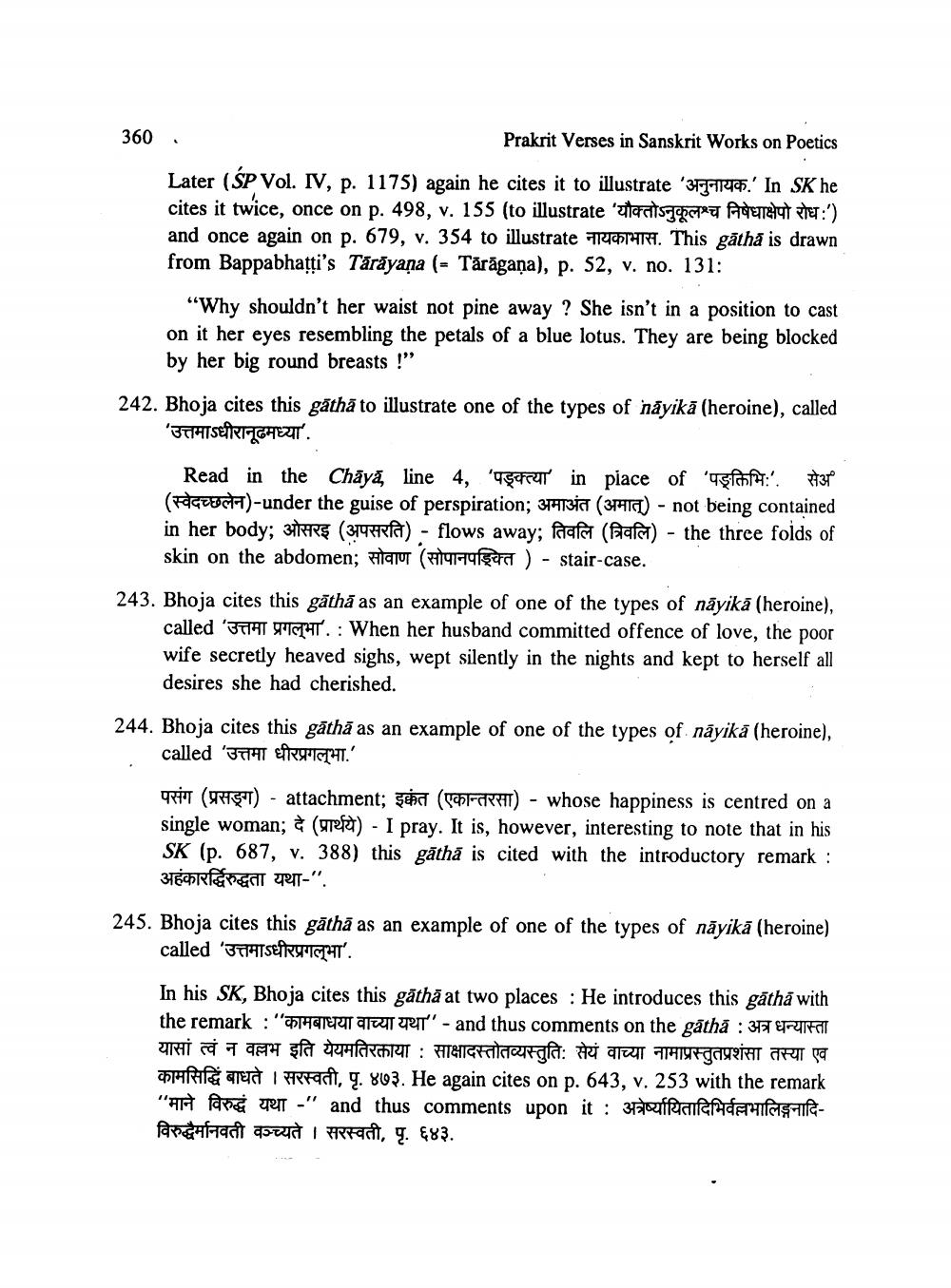________________
360 .
Prakrit Verses in Sanskrit Works on Poetics
Later (SPVol. IV, p. 1175) again he cites it to illustrate 'अनुनायक.' In SK he cites it twice, once on p. 498, v. 155 (to illustrate 'यौक्तोऽनुकूलश्च निषेधाक्षेपो रोध:') and once again on p. 679, v. 354 to illustrate नायकाभास. This gatha is drawn from Bappabhatti's Tarayana (= Taragana), p. 52, v. no. 131:
“Why shouldn't her waist not pine away ? She isn't in a position to cast on it her eyes resembling the petals of a blue lotus. They are being blocked by her big round breasts!"
242. Bhoja cites this gatha to illustrate one of the types of nayika (heroine), called
'उत्तमाऽधीरानूढमध्या'.
Read in the Chaya, line 4, 'पङ्क्त्या ' in piace of 'पङ्क्तिभिः'. सेअ (स्वेदच्छलेन)-under the guise of perspiration; अमाअंत (अमात्) - not being contained in her body; ओसरह (अपसरति) - flows away; तिवलि (त्रिवलि) - the three folds of skin on the abdomen; सोवाण (सोपानपक्ति ) - stair-case.
243. Bhoja cites this gāthā as an example of one of the types of nāyikā (heroine),
called 'उत्तमा प्रगल्भा '. : When her husband committed offence of love, the poor wife secretly heaved sighs, wept silently in the nights and kept to herself all desires she had cherished.
244. Bhoja cites this gāthā as an example of one of the types of nāyikā (heroine),
called 'उत्तमा धीरप्रगल्भा .'
पसंग (प्रसङ्ग) - attachment; इक्त (एकान्तरसा) - whose happiness is centred on a single woman; दे (प्रार्थये) - I pray. It is, however, interesting to note that in his SK (p. 687, v. 388) this gātha is cited with the introductory remark : अहंकारर्द्धिरुद्धता यथा-".
245. Bhoja cites this gāthā as an example of one of the types of nāyikā (heroine)
called 'उत्तमाऽधीरप्रगल्भा'.
In his SK, Bhoja cites this gāthā at two places : He introduces this gātha with the remark : "कामबाधया वाच्या यथा' - and thus comments on the gatha : अत्र धन्यास्ता यासां त्वं न वल्लभ इति येयमतिरक्ताया : साक्षादस्तोतव्यस्तुति: सेयं वाच्या नामाप्रस्तुतप्रशंसा तस्या एव कामसिद्धिं बाधते । सरस्वती, पृ. ४७३. He again cites on p. 643, v. 253 with the remark "माने विरुद्धं यथा -" and thus comments upon it : अत्रेायितादिभिर्वल्लभालिङ्गनादिविरुद्धर्मानवती वञ्च्यते । सरस्वती, पृ. ६४३.




